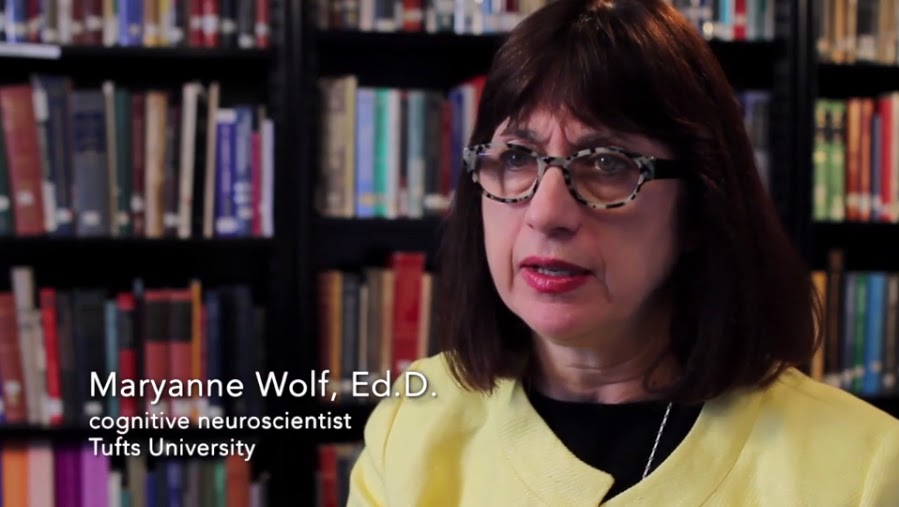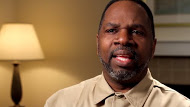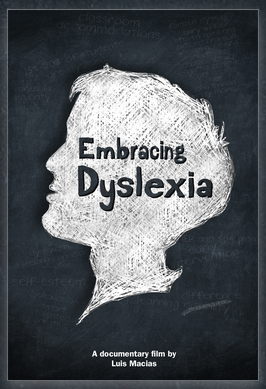In March 2011, Ale was diagnosed with dyslexia.
The diagnosis and continued journey to learn more about dyslexia inspired Luis, a video editor by trade and life-long lover of movies, to create his film, “Embracing Dyslexia.” The film had its world premiere in August 2013 and is currently available for free on Youtube.
“Embracing Dyslexia” features interviews with parents of dyslexic kids; adults who struggled in school with reading, only to learn much later they had dyslexia; as well as high-profile experts in the fields of neuroscience and linguistics.
To learn more about the film, visit: http://embracingdyslexia.com/
To see “Embracing Dyslexia,” visit: https://www.youtube.com/watch?v=cBIK0XVPbXo
How is your son, Alejandro, doing today–How does he feel about reading and school now? Does he participate in any activities?
Ale is doing well. He continues to struggle with his reading and writing assignments, but my wife and I help him as much as we can. I’m not going lie: it can get pretty frustrating for him and for us. Despite the struggles, he enjoys going to school and I’m very happy about that.
Reading is still not automatic. He doesn’t really read for enjoyment although he has asked for and read books written in the Minecraft universe. At this point that’s really all I can ask for. I do read to him at bedtime though. He loves this bedtime ritual and gets sad when I can’t do it because I am working. We have gone through the Harry Potter books, the Percy Jackson books, and we are currently working our way through the Heroes of Olympus books.
Ale really enjoys playing on his school’s basketball team. It’s the only extracurricular activity that he participates in because homework just takes up too much of his time during the week. He LOVES Minecraft and plays it every chance he gets. I don’t mind because it allows him to create digitally in a way that Legos allowed him to do on the living room floor.
How familiar were you with dyslexia when Ale was first diagnosed?
I knew it had to do with being unable to read well, but I also thought it was flipping letters and reading backwards. As soon as we received the diagnosis I began to worry that we would have to transfer him out of his school because I wasn’t sure if the school would be able to help him. I also worried that he wouldn’t be able to go to college. It wasn’t until I started doing research online that I learned what dyslexia actually is and any fears about his future were quashed.
I began to worry that we would have to transfer him out of his school because I wasn’t sure if the school would be able to help him. I also worried that he wouldn’t be able to go to college.
You say in the film that holding Ale back in first grade is a big regret–can you briefly explain why?
There are many reasons why I regret the decision to hold Ale back. The biggest reason is that he will always know that he was held back. I can’t even begin to imagine what he must have felt seeing all his classmates and friends move on to second grade while he had to repeat first grade. And it was all for nothing. It didn’t help one tiny bit. I failed him.
When Ale was first diagnosed, you say in the film an administrator at his school warns against using the term ‘dyslexia’ and says that labeling kids is bad. Do you think this point of view still exists today or are people becoming more educated about how to best talk about dyslexia and other learning disabilities?
This point of view most definitely still exists. There are still educators who insist that dyslexia does not exist. The understanding of dyslexia in schools is shamefully low, but there are teachers and administrators who are becoming aware of dyslexia and beginning to take it upon themselves to learn more about it in an effort to help their struggling students. In all honesty, real progress will be made once teacher colleges begin holding courses on dyslexia and making it mandatory that every single teacher take at least one course on it.
However, for this to happen, those responsible for creating the curriculum at the teacher colleges need to believe that dyslexia is real and understand just how important it is for teachers to know what dyslexia is, what signs to look for, and what strategies they can implement in their classrooms which will benefit their students struggling with reading, writing, spelling, and even math.
What interventions did Ale receive?
When we transferred Ale to the school he is currently in, he was immediately placed in reading resource due to his low reading scores. The resource teacher used The Wilson Reading System. Eventually we hired a private tutor who used the Barton System. His current tutor uses EBLI (Evidence Based Learning Instruction) with him and he has made tremendous strides using this system.
You talk to a number of very well-regarded experts in the film. How easy or difficult was it to get experts to talk to you on-camera?
It was surprisingly easy. Most of the experts I interviewed were due to a connection I made with Cinthia Coletti Haan of Literate Nation. I contacted her in an effort to secure an interview for the film. She was immediately on board. At that time, she was holding a Literate Nation event in New Haven, Connecticut and wanted to film the event. So, she asked if I was interested and in return she would arrange for me to interview some pretty fantastic people, including Maryanne Wolf, Ken Pugh, Stewart Hudson, Margie Gillis, Carolyn Cowen, and Diane Lyon.

I didn’t hesitate to say yes. I had reached out to Deborah Lynam and Liz Barnes of Decoding Dyslexia New Jersey for interviews and as it turned out Deborah was part of the Literate Nation event and Liz travelled up to Connecticut from New Jersey for her interview. I reached out to both Kelli Sandman-Hurley and Susan Barton and both were on board right away.
I was surprised how receptive everyone was to being part of the film, but I knew my film would make an impact and I know that came across when I asked for interviews. These people know their stuff and they were very generous with their time and knowledge and they were all natural speakers so they made my job easy.
The only interview which I really wanted but was unable to make happen was with Henry Winkler. We had emailed back and forth and he was interested but Henry is one busy man and because of his hectic schedule and with me in Chicago and him in Los Angeles, I was never able to make it work.
What did you learn in the process of making the film that surprised you?
I would have to say that the biggest surprise for me was finding out just how many extremely dedicated people there are who make it their daily mission to raise dyslexia awareness. When we first started on this dyslexia journey it certainly felt like we were alone, but as I began to make the film I realized that this just was not the case.
Another thing that surprised me was a something that I learned during my interview with Maureen O’Connor. We were talking about the impact of illiteracy and she mentioned that a large percentage of prisoners are illiterate, something like 70 – 80%. Then she added that over half of those prisoners have dyslexia. As it turns out, there is a 2000 study* out of Texas which showed that 48% of the prison population has dyslexia. Not being able to read can have dire consequences. Can you imagine how life might have been different if these individuals were identified while in school and received the help they needed to learn to read?
*Here’s a link to the Texas study: http://www.educationupdate.com/archives/2008/DEC/html/spec–dyslexia.html
What has the response to your film been? Did you find that others have had a similar experience to the one you and your son had?
The response to the film has been fantastic. We have over 120,000 views on YouTube and Vimeo. Organizations such as Decoding Dyslexia have screened the film all over the country. Educators and parents, my intended audience, are seeing the film. I can only hope it’s making a big enough of an impact that lives are being changed for the better. I’m truly honored by that.
Throughout the making of this film I was shocked by how eerily similar the parents’ stories were to mine. Prior to learning what dyslexia meant, almost all of us made the same mistakes with our children. We would blame them for their poor academic performance. We all shared in the nightly homework wars, the tears, and the frustration. All of our kids said that they were stupid. Once we were made aware that the reason for our children’s struggles was dyslexia, we all experienced a seismic shift in attitudes.
What’s your best advice for parents who are where you and Ale were just a few years ago, just prior to his diagnosis?
The best advice I can give to parents is this: If your child is struggling with reading and spelling in first grade don’t assume it’s because they are not trying hard enough. Speak with his or her teacher and ask them if they are seeing the same issues. What else are they noticing?
Go online and see if your child is showing signs of dyslexia. Have your child tested for dyslexia. The tests will also reveal if their reading and spelling issues are due to some other reason.
The International Dyslexia Association has a Provider Directory
(http://eida.org/ida-accredited-provider-directory/) to help you find someone in your area who is qualified to properly assess your child. Once the testing is done and you have the diagnosis, share the information with your child in a way that is appropriate for their age. They know they are struggling and to find out that it is not their fault will lift a huge burden off their backs and will hopefully help them regain some of the self-esteem they have lost. Your next step is to begin the process of getting your child the appropriate help he or she needs in school and at home. I’m not going to lie, this part of the journey might be quite challenging, especially when dealing with the schools. But, never give up the fight to make sure your child gets what he or she needs to be successful in school.

How did you first meet Cornell Amerson and what was it about his story that intrigued you?
(Cornell is an adult who struggled with dyslexia in school, but wasn’t diagnosed until later in life). Cornell actually contacted me via Twitter. He shared with me a link to his website where he wrote about his struggles in school. It was these struggles that intrigued me so I wrote him back and asked him if he would be interested in being interviewed for the film. When he said yes, I sent him a list of pre-interview questions to make sure that traveling to Detroit where he lives would be worth the time and expense. After he replied I knew Cornell’s story had to be told. It was a clear example of what can happen when a child with dyslexia is never identified and is allowed to fall through the cracks of our educational system. It also shows what can happen when there is little to no support in a dyslexic child’s life. I truly believe that if Cornell had been identified, had gotten the help he needed, and had been give the support he deserved, he would be designing aircraft and spacecraft today.
What, in your view, is the biggest advancement that’s been made since Cornell and Mark Harbaugh’s day?
(Mark Harbaugh is another adult who has struggled with dyslexia)
Honestly, the biggest advancement as I see it is the internet and the ability to access information that just wasn’t easily available before. Most of us have the ability to jump online and learn about dyslexia either by reading about it or watching films about it.
Another big advancement is the brain research that has been and is currently being conducted to map the dyslexic brain and show how it differs from a non-dyslexic brain in how it processes language. This research has proven beyond any shadow of a doubt that dyslexia is real.
Sadly, I believe our education system is stuck in the past. Teacher training schools are not providing courses on dyslexia so new teachers are not getting the information that could help them understand what is going on with up to 20% of their students. Standardized testing means nothing to a student who performs poorly in reading, writing, and spelling if they are not being tested for dyslexia and then given the proper intervention. The fact of the matter is that how we teach reading has to change. We also need to understand that one’s ability to read has nothing to do with how intelligent someone is.

Discuss the title of your film, “Embracing Dyslexia.” Is there something to the notion of embracing what makes you different as a learner, rather than fighting against it? Relatedly, what difference has that made in your life and your son’s life?
embracing_dyslexia_coverI chose Embracing Dyslexia as the title because I wanted something that was positive. It had to speak to those who were the target audience (educators, parents, and policymakers), but it also had to speak to those with dyslexia. For the educators, parents, and policymakers, I wanted them to understand that they need to embrace the word and what it means.
By embracing dyslexia, educators can begin to help their struggling students in an effective way. Parents can help their children understand why they struggle, give them support, and be their advocates in school. And policymakers can introduce and pass laws that require testing for dyslexia and provide meaningful, educational supports for those diagnosed with dyslexia.
As for the dyslexic person, embracing it means acknowledging that you are not stupid. You just learn differently. It means understanding that you will have to work harder than your peers. It means not being ashamed because there is nothing to be ashamed of. It means becoming your own best advocate and not being afraid to ask for the help and accommodations you need to be successful in school and beyond.
As for the difference embracing dyslexia has made in my life, it has given me the ability to make sure my son gets the help he needs to be as successful a student as possible. It’s also given me the desire to educate others about dyslexia and hopefully make the type of impact that changes lives for the better. By embracing his dyslexia, my son is a much happier child. He’s gone from calling himself stupid on a daily basis to never calling himself stupid again. His self-esteem has shot way up and he isn’t afraid to ask for help whenever he needs it whether it’s his teachers, his friends, or us. He still struggles, sometimes a lot, but he never gives up.
